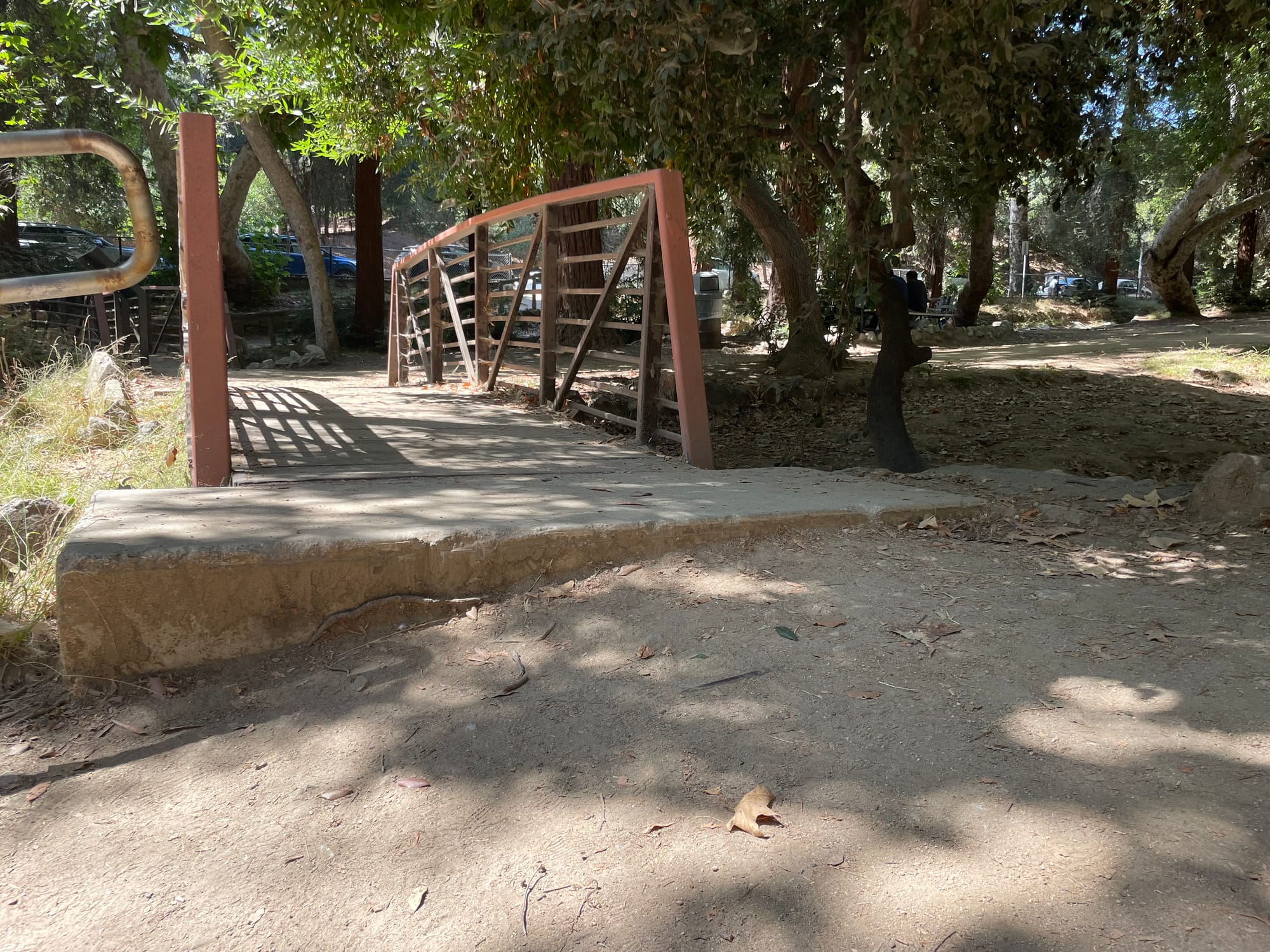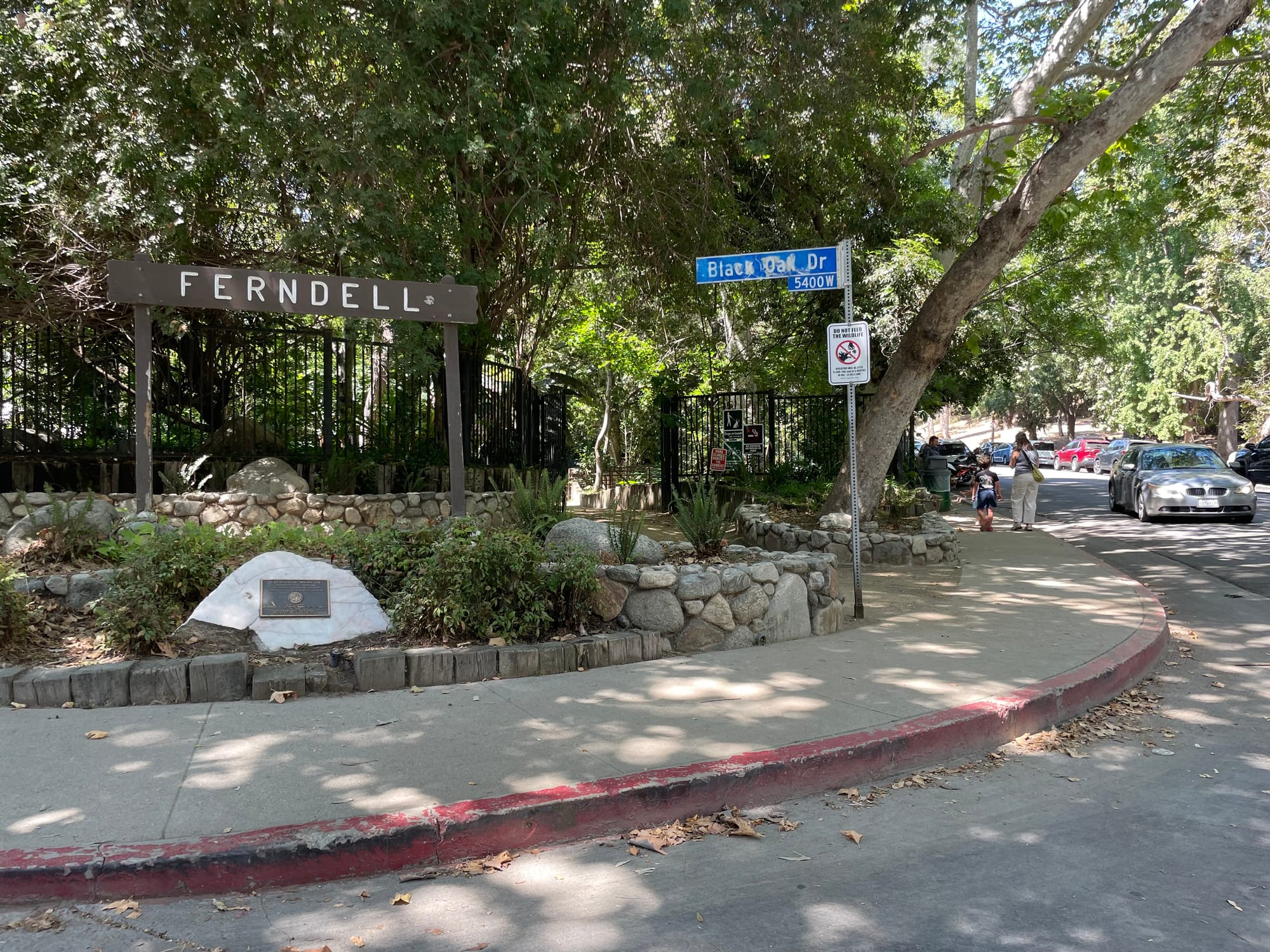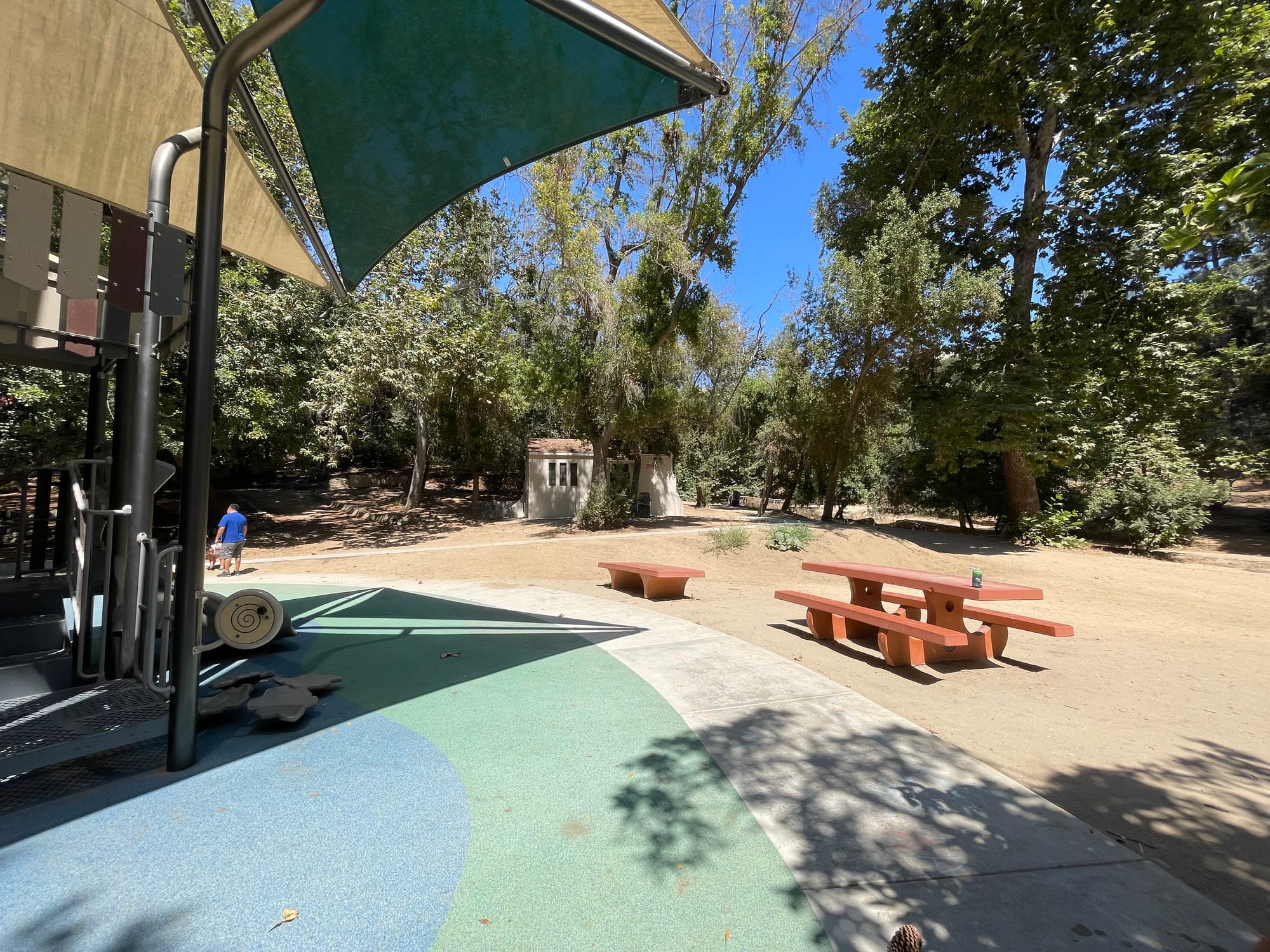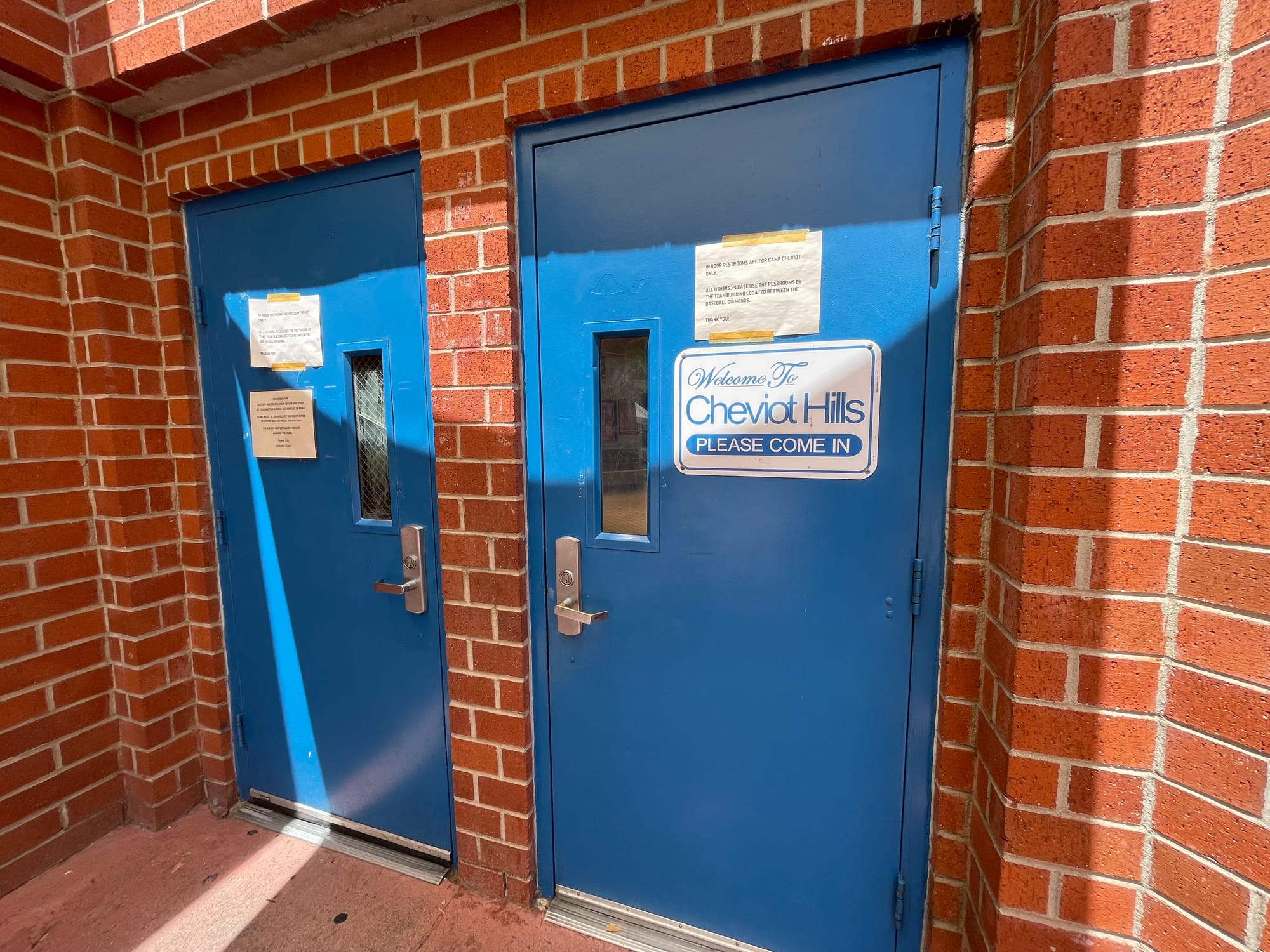Empty stadiums, travel bans, and ICE raids
"If you want to come to the U.S. games, just know that they may harass you depending where you're from and depending on what you look like"
As LA officials gathered in Paris for the Olympics, a federal class-action lawsuit was filed against the city on behalf of four plaintiffs with mobility disabilities, including one 10-year-old child, who say they are "denied full and equal access to its parks and park facilities"

The closing ceremonies are over and the Olympic flag is flying first-class to its new City Hall penthouse. Next up, the Summer Paralympics begin in Paris on August 28, and in anticipation of hosting its first-ever Paralympics in 2028, LA is gearing up for another round of celebrations. LA's Department of Recreation and Parks is throwing Paralympic viewing parties and hyping its adaptive sports classes like wheelchair basketball — all funded by a $160 million gift from LA28 "recognizing the benefit of sport at a young age shouldn’t be reserved for only able-bodied kids."
But on July 26, exactly 34 years after the Americans with Disabilities Act was signed into law, and on the day LA officials gathered in Paris for the opening ceremonies of the Olympics, a federal class-action lawsuit was filed against the city on behalf of four plaintiffs with mobility disabilities, including one 10-year-old child, who say they are "denied full and equal access to its parks and park facilities." Griffin, et al. v. City of Los Angeles alleges LA has made "alterations to its existing park facilities without complying with federal and state disability access design standards," resulting in "systemic and pervasive discrimination" against people with mobility disabilities.
To Carrie Madden, a systems change advocate at disability advocacy group Communities Actively Living Independent and Free, which is an organizational plaintiff in the lawsuit, the violations are jarringly hypocritical for a city hosting the Paralympics. "Children with disabilities are going to be excited and inspired watching the games and may want to try some of these sports out," she told me. "But when they go to places like Chatsworth Park, for example, they are going to find the basketball court inaccessible. There is sand on all four sides. The kids are going to be disappointed that they can’t follow their dreams."
The 40-page complaint outlines a lengthy list of state and federal violations at park facilities all over the city, many of which are used for the city's LA28-funded adaptive sports program. I visited three parks to see the violations in person: Griffith Park, Venice Beach Recreation Center, and Cheviot Hills Recreation Center. I was most shocked to see violations at the Venice Beach Recreation Center, which has been promoted heavily on the city's social media accounts for its para surfing clinics. As the complaint alleges, there is no signage directing people to accessible bathrooms, no grab bars inside bathroom stalls, limited beach access for people with mobility disabilities, and many broken, narrow, and sand-covered paths making it very difficult for a wheelchair or scooter to travel.
The inaccessible Venice Beach facilities named in the Griffin v. City of Los Angeles complaint can be seen in this city-produced para surfing video
Although I had observed some of these violations before reading the complaint, my initial thought upon seeing the lawsuit was that these issues were obviously the result of a severely underfunded park system with over $2 billion in deferred maintenance. And while outdated facilities are certainly a major issue in LA parks, what's more astonishing is that many of the violations are found in facilities that have been built in the last few years. As the lawsuit's 10-year-old plaintiff navigated to a new universally accessible playground installed in Highland Park's Sycamore Grove Park in 2020, she rolled into a pavement gap large enough to trap the front casters of her wheelchair, "putting her at serious risk of being ejected." A parent had to free her wheels.
"The legal mandates for full and equal access to parks and park facilities are decades old. These are not new laws," says Jinny Kim, a supervising attorney at Disability Rights Advocates. "Accessibility should be top of mind when undergoing new construction or alterations. It is much more disruptive and expensive to go back and fix things than if it were done correctly in the first place."

The lawyers representing the plaintiffs in Griffin v. City of Los Angeles are intimately familiar with LA's infrastructural shortfalls. The same legal team represented the plaintiffs in Willits v. City of Los Angeles, where the United States District Court for the Central District of California ruled that LA violated ADA laws by failing to maintain smooth sidewalks and install curb ramps at intersections. In 2016, the city of LA was ordered to pay $1.4 billion over 30 years to fund a sidewalk repair program. "It’s the same laws, it’s the same standards, it’s the same requirements," says Paula Pearlman, who is one of many lawyers representing the plaintiffs of both suits. "It shouldn’t be governance through litigation, we’re looking for city leadership to move the ball forward."

Not surprisingly, many of the violations named in Griffin v. City of Los Angeles concern the walkways in parks. In Griffith Park, I witnessed egregious violations: nonexistent curb ramps, dangerously uneven pavement, posts installed in the middle of sidewalks, and paths of travel that force people to enter lanes of vehicular traffic.
Even when facilities for people with mobility disabilities are installed by the city, those facilities don't connect to other amenities that people with mobility disabilities will need to use them. In Griffith Park, some ADA parking spots — which are not clearly marked — are parallel to the curb and don't have a loading zone. The newer Ferndell playground had smooth pavement connecting it to the sidewalk and nearby bathrooms, but the closest benches and picnic tables were in the uneven dirt.

Similarly, LA's park bathrooms are a minefield of violations. Among the issues noted in the complaint are a lack of grab bars, inaccessible hardware, inaccessible faucets, and too-narrow stalls. Many park bathrooms are also locked, missing doors, or in grave disrepair, which I've written about before. This can be a messy inconvenience for a mom with a toddler, but it's illegal discrimination for a person who uses a wheelchair.
At the Cheviot Hills Recreation Center, which hosts wheelchair basketball clinics, the complaint noted that a restroom building near the parking lot does not have any accessible stalls. Additionally, the door to the rec center where the accessible restroom is located is too heavy for someone using a wheelchair to open independently. And when I visited the rec center, a sign noted that this restroom, the only accessible restroom in the facility, was not open to the public due to summer camps. It directed people to the bathroom near the parking lot — yes, the same one with no accessible stalls.

As I wrote in my story about LA's public pools, the investment in youth lessons that LA28 is making ahead of the Olympics is undermined when the park facilities themselves are in shambles. But when the city is offering LA28-funded adaptive classes at a facility with an ADA violation, people with mobility disabilities may not be able to get to their lessons or use the bathroom when they get there. That's happened to plaintiff Olivia Almalel, who uses a motorized wheelchair. Almalel, who lives across the street from the Northridge Recreation Center, cannot use the restrooms at the park because there are no accessible stalls, and, as she details in the complaint, she almost missed a birthday party at Viking Park in Porter Ranch because there are no paved pathways into the park. Almalel says due to the lack of details on LA park websites and basic signage in parks, she relies on the community-sourced Roll Mobility app for park accessibility information — but it's not always available. "When you think about the time it takes to plan and coordinate travel, caregiving, health needs, doctor's appointments, the weeks of planning that goes into every part of our day just to live," she says. "And then we actually make it, we get all the way there, and we're still not able to attend the event."
LA's Department of Recreation and Parks couldn't respond to questions about litigation. But a spokesperson from LA's Department of Disability, who had yet to formally review the complaint, said the department is "committed to supporting the Department of Recreation and Parks in their efforts to improve accessibility and ensure compliance with federal and state laws to the extent resources are available."

My concern is that there aren't any resources currently available. Park positions were hit hard in the budget. The city's park bond is set to expire in 2026, with no plan yet to replace it with a new funding source. (A hasty and misguided 2022 ballot measure failed.) A very overdue needs assessment is currently being conducted by the parks department — the RFP was just released — which could hypothetically highlight what upgrades must be made. But the status of the previous settlement LA city negotiated with Disability Rights Advocates doesn't bode well. Even before the city's current fiscal crisis, LA's sidewalk repair program plateaued, with a current backlog of over 3,400 requests from people with mobility disabilities. These are requests from people who are simply demanding basic sidewalk infrastructure like curb cuts and not-buckled pavement. Nearly a decade after the Willits settlement, some CALIF members say they have been waiting eight years for fixes on their block.
In an effort to understand how those backlogs can get unclogged, Hilary Norton, executive director of FastLinkDTLA, is working closely with CALIF members to learn how people with mobility disabilities use downtown ahead of the Paralympics. "To help people go where they want to go," says Norton, "not just where they go to make do." Part of FastLinkDTLA's initiative will include better maps, signage, and wayfinding — posted at a level so people using wheelchairs can see it, she says — and a full assessment of how people with mobility disabilities access downtown's parks and public spaces. For Norton, a former state transportation commissioner, the Paralympics offer a transformative opportunity to get all city departments on the same page and finally fund necessary systemic changes, led by disabled Angelenos. Everyone wants to do the right thing, she says. "What if we made LA’s first Paralympics the international model for what to do?"
Becoming a city known for its universal access instead of its ADA lawsuits? It's difficult to imagine a better legacy for hosting what is set to be the largest-ever Paralympic games. And the improvements would benefit all of us, says Almalel. "It’s not 'if,' it's 'when' one becomes disabled, whether temporarily, or different degrees of limited function, for any part of your body," she says. "If the location is accessible for me, it's accessible for everyone." 🔥